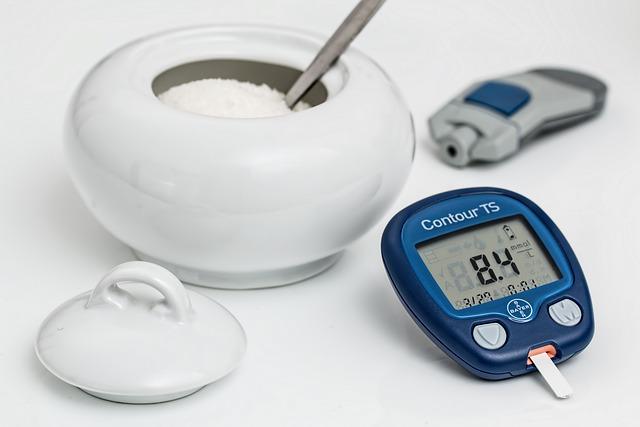
Hypoglycemia: Understanding Low Blood Sugar Levels in Non-Diabetic Individuals
Hypoglycemia, also known as low blood sugar, occurs when the level of glucose in your blood drops below normal levels. This can happen to anyone, including non-diabetic individuals, and can lead to a variety of symptoms and complications if not properly managed. In this article, we will explore the causes, symptoms, and treatments of hypoglycemia in non-diabetic individuals.
Causes of Hypoglycemia in Non-Diabetic Individuals
There are several reasons why someone who is not diabetic may experience hypoglycemia. One common cause is skipping meals or not eating enough food, which can lead to a drop in blood sugar levels. This can happen if you are following a restrictive diet, not getting enough nutrients, or simply forgetting to eat.
Another common cause of hypoglycemia in non-diabetic individuals is excessive physical activity. When you exercise, your body burns through glucose for energy, which can cause your blood sugar levels to drop. This is why it’s important to eat a balanced meal before and after exercise, to ensure that your blood sugar levels stay within a healthy range.
Additionally, certain medications can also cause hypoglycemia in non-diabetic individuals. For example, some antibiotics, antimalarial drugs, and chemotherapy medications can lower blood sugar levels. It’s important to talk to your healthcare provider if you are taking any medications that may be affecting your blood sugar levels.
Symptoms of Hypoglycemia in Non-Diabetic Individuals
The symptoms of hypoglycemia can vary from person to person, but common signs include feeling shaky, sweaty, faint, irritable, or confused. You may also experience hunger, headache, weakness, and fatigue. In severe cases, hypoglycemia can lead to seizures, loss of consciousness, or even coma.
If you suspect that you or someone you know is experiencing hypoglycemia, it’s important to check your blood sugar levels using a blood glucose meter. If your levels are below 70 mg/dL, you should immediately consume a fast-acting source of glucose, such as a glass of juice, a few pieces of hard candy, or a glucose gel. If your symptoms do not improve within 15 minutes, or if you are unable to eat or drink, seek medical help right away.
Treatment of Hypoglycemia in Non-Diabetic Individuals
In addition to consuming fast-acting sources of glucose, there are several ways to manage hypoglycemia in non-diabetic individuals. One important step is to eat regular meals and snacks throughout the day, to keep your blood sugar levels stable. This means including a balance of carbohydrates, protein, and fats in your diet, to help prevent sudden drops in blood sugar.
It’s also important to stay hydrated, as dehydration can exacerbate hypoglycemia symptoms. Drinking plenty of water throughout the day can help keep your blood sugar levels in check. Additionally, getting regular exercise can help improve your body’s sensitivity to insulin, which can help prevent hypoglycemia.
If you are experiencing frequent episodes of hypoglycemia, it’s important to talk to your healthcare provider. They can help determine the underlying cause of your low blood sugar levels and recommend appropriate treatment options. In some cases, medication may be prescribed to help regulate your blood sugar levels.
Prevention of Hypoglycemia in Non-Diabetic Individuals
There are several steps you can take to prevent hypoglycemia in non-diabetic individuals. Firstly, make sure to eat regular meals and snacks throughout the day, to keep your blood sugar levels stable. This means including a balance of carbohydrates, protein, and fats in your diet, to help prevent sudden drops in blood sugar.
Additionally, try to avoid skipping meals or going long periods without eating. If you have a busy schedule, plan ahead and pack healthy snacks to keep with you throughout the day. This can help prevent dips in your blood sugar levels and keep you feeling energized.
Staying hydrated is also important for preventing hypoglycemia. Drink plenty of water throughout the day to help maintain your blood sugar levels and stay healthy. Limiting your intake of sugary drinks and alcohol can also help prevent sudden drops in blood sugar.
In conclusion, hypoglycemia is a condition that can affect non-diabetic individuals and cause a variety of symptoms and complications. By understanding the causes, symptoms, and treatments of hypoglycemia, you can better manage your blood sugar levels and prevent episodes of low blood sugar. If you are experiencing frequent episodes of hypoglycemia, it’s important to talk to your healthcare provider to determine the underlying cause and find appropriate treatment options. By taking these steps, you can help ensure that your blood sugar levels stay within a healthy range and maintain your overall health and well-being.












